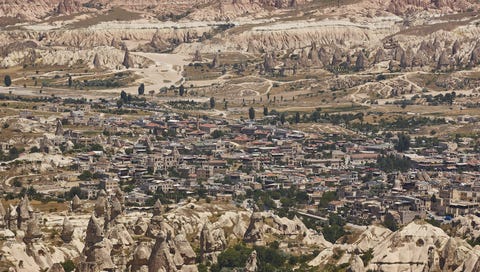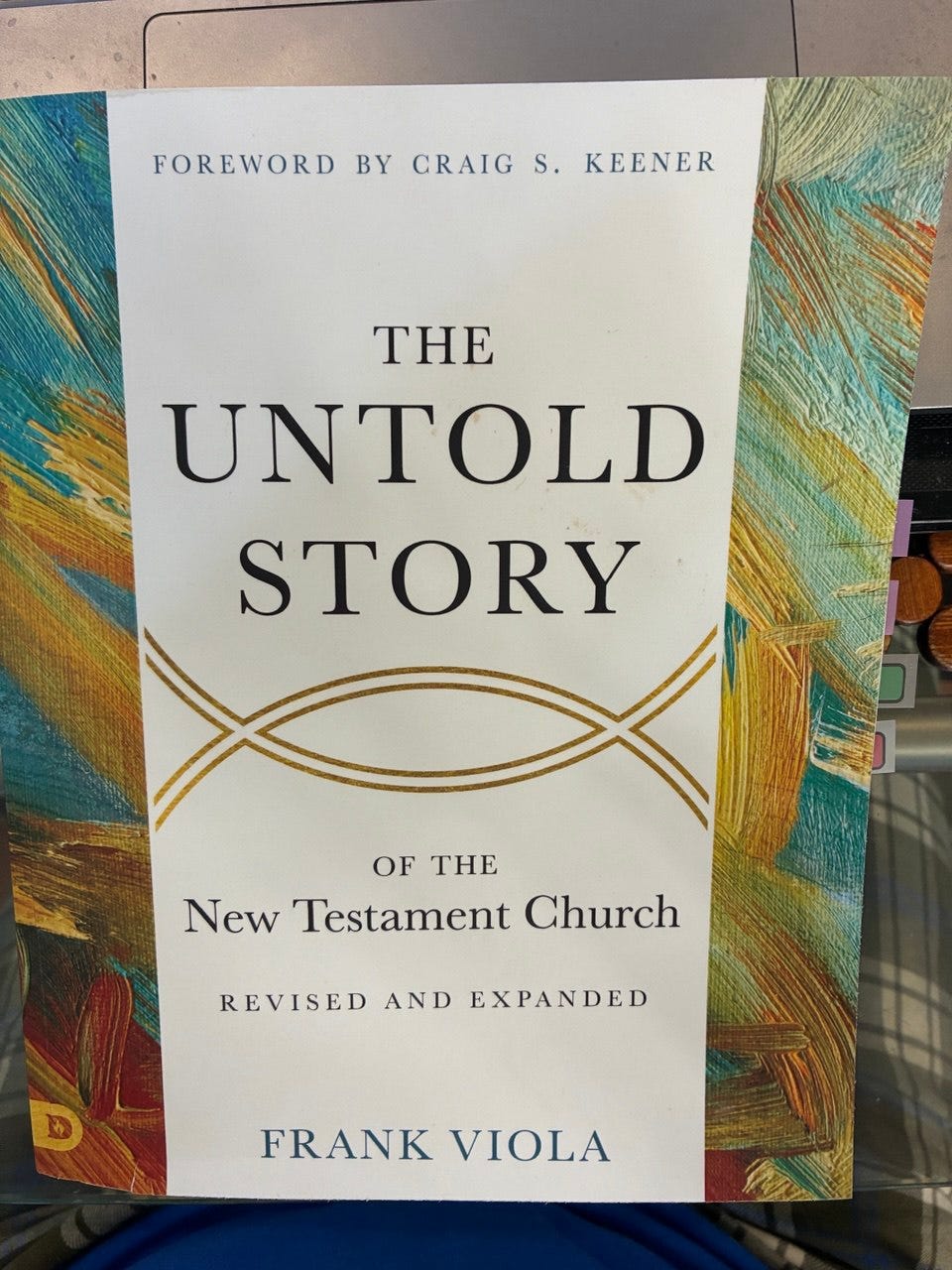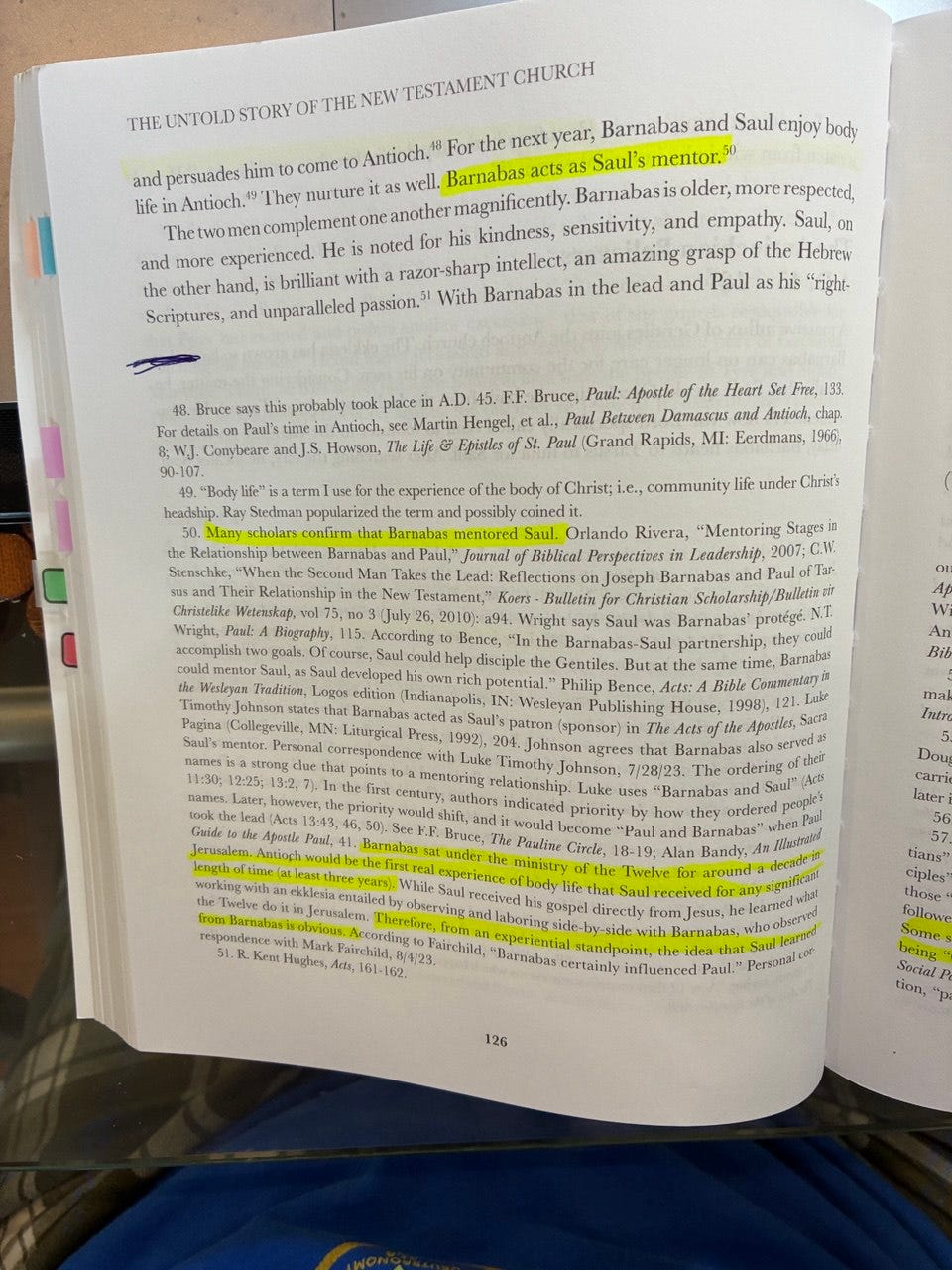When we think of the early Christian church, it’s easy to romanticize it as a time of powerful miracles, angelic visitations, and the rapid spread of the gospel. And to be sure, the Spirit of God was moving mightily. But beneath those mountaintop moments were deep valleys of suffering, confusion, persecution, and hardship. The church was born in adversity. And men like Paul, Barnabas, Peter, James, John, and others were faithful, wounded warriors who carried the costly scars as they shared the message of Jesus with region and then to the world.
I’m steadily working through Frank Viola’s latest 500-page work, The Untold Story of the New Testament Church—an in-depth account of the early Christian movement and the apostolic journeys of Paul as chronicled in the Book of Acts. Viola masterfully weaves together Scripture and historical evidence, drawing from the research of dozens of scholars to reconstruct the struggles and breakthroughs in the first-century church. Each page is densely packed with endnotes—often taking up more space than the main text—but far from being excessive, these notes offer invaluable insight and depth. I’m learning a tremendous amount from the detailed and eye-opening information!!
I’ve written about this book previously and will likely write more commentary as I proceed through the book; I’m about halfway through it now.
I’ve always loved digging into history—asking the big question, “How did we get here?”—and the biblical history in this book brings that journey to life in vivid detail. The Untold Story makes the daily experiences of the early apostles incredibly relatable. Reading it feels like you’re right there with them, walking through the noisy, dirty, smelly, chaotic streets of the first-century world.
Viola’s narrative is rich with historical and cultural context that deepens the understanding of Scripture. For example, the book describes fascinating details about local customs and daily life, such as this:
Antioch was the third largest city in the Roman empire in 45AD. It had a reputation of being so immoral, it was accused of defiling the other parts of the empire. It was filthy, violent, unsafe, and a “pest hole” of infectious disease. The infant death rate was nearly 50% and children weren’t considered human until they could walk and talk.
The growing Christian movement brought culture, social welfare, joy, hope, and a sense of family to the cruel conditions. In Antioch, the disciples of Jesus were first designated “Christians”, meaning Christ’s people. Over the years, Syrian Antioch became the cradle of Gentile Christianity.
It was interesting to read about how the original Twelve taught Barnabas, who then mentored Paul. Viola describes it this way:
Barnabas sat under the ministry of the Twelve for nearly a decade in Jerusalem. Antioch would be the first real experience of life with a body of believers that Saul had experienced for any length of time (about 3 years).
The two men complemented one another magnificently. Barnabas was older, more respected, and more experienced. He was noted for his kindness, sensitivity, and empathy. Saul, on the other hand, was brilliant with a razor-sharp intellect, an amazing grasp of the Hebrew Scriptures, and unparalleled passion. The two men gathered the ekklesia to teach God’s word in a thriving community.
These stories remind us that the Holy Spirit, the power of the love of Jesus, and the good new of Gospels has been transformative to people, cultures, and nations for more than two thousand years.







Thank you for the book info. Just one thing tho and this is a question that I haven't gotten a satisfactory answer on..how could people who followed the way be called "christian" when Yeshua was called Messiah, Master, Teacher. "christ" was/is not a Hebrew word. I have read when King James had the Bible translated he used that word just as the word church is not a Hebrew word. The Followers of the Way gathered in assemblies. Jewish people which is what they were went to synagogues not "churches". Why were the words changed? We have those words Messiah, Yeshua, synagogue, assemblies in our vocabulary. I just wrote them so why don't we use the original words?
Thank you. I've been watching several different documentaries about the ruins of the towns where Paul lived and started churches. It's so helpful to know about this book and a bit about it. Such important information.